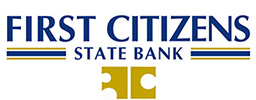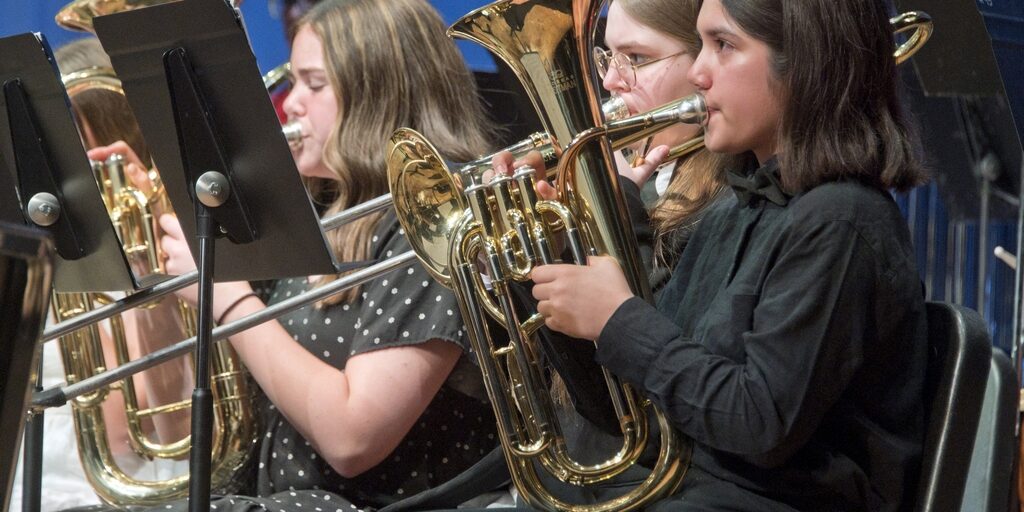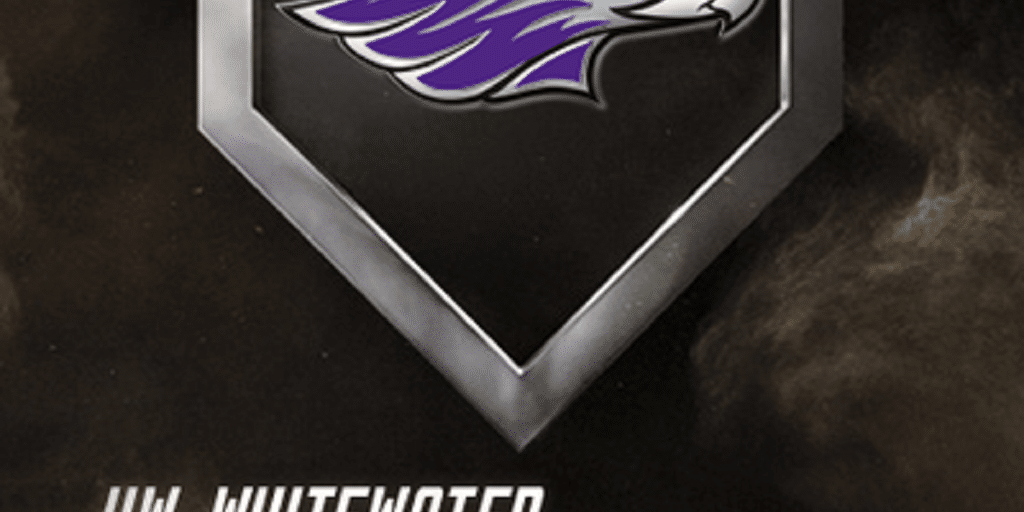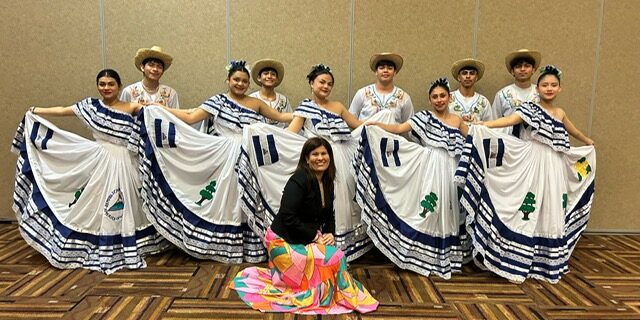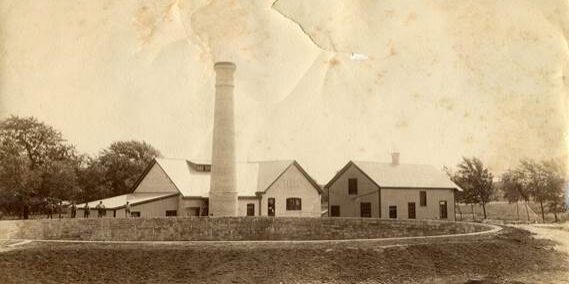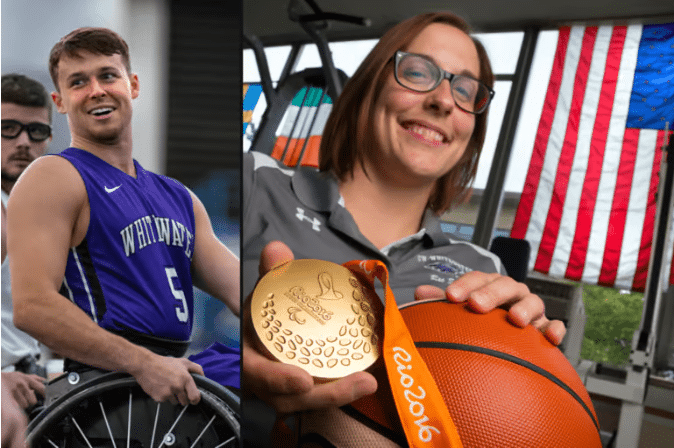
Talen Jourdan (Left) is one of six Whitewater alumni on the U.S. men’s team in Paris; Christine Schwab with her Olympic gold medal in wheelchair basketball from Rio 2016 (Craig Schreiner/UW-Whitewater)
An article by Ben Pickman in The Athletic (a New York Times publication) on August 28 was titled “Welcome to UW-Whitewater, the bedrock of the U.S. Paralympic wheelchair basketball teams.” Excerpts of the story, which is behind a paywall, are shown below.
“The scuff and skid marks help tell the story. Of collisions, of wheelchairs tipping over, of abrupt stops, pivots, and turns. The banners on the walls around the court’s perimeter serve as a complement to those tales — of a World Championships in Amsterdam, of a Parapan-Am Games in Toronto, of the 2012 London Paralympics, of the three women’s and 14 men’s collegiate national titles.
From the outside, the Roseman Building…looks like another indistinguishable administrative hall….But “Roseman,” as its inhabitants call it, is home to some of the best wheelchair basketball players in the United States….It is one of the most understated venues used by high-level athletes.
…As the Paralympic Games get underway in Paris, the core of the U.S. wheelchair basketball program has roots in the school and the Roseman Building.
Of the 12 members on Team USA men’s wheelchair basketball squad, six are alumni of UW-Whitewater, the most of any university. The women’s team has two players, and one alternate, who competed collegiately at UW-Whitewater…Two alums will play for Germany and another is on the Netherlands roster.
That a university with Division III athletics, and a student body of around 11,000 (more than 1,300 of which have disabilities) became a leader in the wheelchair basketball space stems from serendipity.
In the early 1970s, only a few programs provided services to students with disabilities across America. Less than a half-dozen had wheelchair basketball teams.
John Truesdale was working for Wisconsin’s division of vocational rehabilitation when UW-Whitewater received grant money to support students with disabilities. Shortly after, he was brought into the university to address campus accessibility needs, eventually starting the school’s disabled student services office — which then served around 10 students — and its adaptive recreation program.
Truesdale played stand-up basketball recreationally throughout his youth but had no prior coaching experience. Nevertheless, he took over the sideline duties…. A group of non-disabled students practiced with them because they liked the competition. “I really didn’t know anything,” Truesdale said. “It wasn’t anything that I did as much as it was students and staff buying into it because they saw the need.”
The existence of the program was a starting point.
Shortly after the program’s launch, the university rewrote its mission statement and committed to developing and providing services for students with disabilities. Its intentions were clear. Buy-in followed. “Interest spread throughout the entire campus,” Truesdale says. “It was somewhat unique.” Nowadays, more than 12 percent of Whitewater students use the services offered by the center for students with disabilities on campus.
…..Talen Jourdan represents this generation. Jourdan is from nearby Deerfield. He didn’t know much about the program’s history when he enrolled. But he does now. And on top of the tales of those before him, he appreciates that the men’s team has their own locker room, space for chairs, and a weight room.
Jourdan’s hands are full of calluses and his forearms have countless scars because he uses them to help brake. The marks have been worth it. This spring, he learned he had made his first Paralympic team.
While the U.S. women are looking to win their first gold since 2016, the men are seeking a third consecutive title and to complete the first Paralympic three-peat in men’s wheelchair basketball. “It would mean a lot to everybody,” says Jourdan, who graduated from Whitewater in May…“I love playing at Whitewater because everybody knows about wheelchair basketball and the success the program’s had.”
A comment made by a reader of The Athletic:
Bruce G.
Thanks for the great article celebrating UW-Whitewater. Both of our boys swam at UWW but went to wheelchair basketball games and had their players come to their meets. I remember watching wheelchair basketball games during tournaments UWW would host and being in awe of the athletes. Our experience at UWW was all athletes from all the sports fully supported each other.
When are the U.S. wheelchair basketball teams in action?
Men’s fixtures
- Aug 29: vs Spain (10am ET) US 66 / Spain 56
- Aug 31: vs Netherlands (9 am CDT) — US 60 / Netherlands 34
- Sep 1: vs Australia (3.30am CDT) — “Digital only”
- Sep 3: quarterfinals (Begin 6:45 am CDT)
Sep 5: semifinals; Sep 7: bronze medal match and gold medal match
Women’s fixtures
- Aug 30: vs Germany (9 am CDT) US 73 / Germany 44
- Aug 31: vs Netherlands (11.15 am CDT) – Netherlands 69 / US 56
- Sep 2: vs Japan (6.45 am CDT) – Broadcast on USA
- Sep 4: quarterfinals; Sep 6: semifinals; Sep 8: bronze medal match and gold medal match
How do I watch the Games?
Live coverage of the opening ceremony will be shown on USA Network at 12pm CDT. Then on every sporting day, starting on Thursday, August 29, USA Network will provide coverage of the most exciting events, including live finals. Streaming service Peacock will also broadcast around 1,500 hours across all 22 sports throughout the 12-day event, including the hugely popular ‘Gold Zone’ whip-around show.
NBC will have three primetime windows: Friday, August 30 at 8pm CDT; Sunday, September 1 at 6pm CDT; and Friday, September 6 at 8 pm CDT, while CNBC will present live action each weekend. NBCParalympics.com will have the most up-to-date listings and information for viewers in the States.
The Paralympics YouTube channel will also provide live coverage, replays, highlights, creator content and athlete features.
A comment made by a reader of The Athletic:
Bruce G.
Thanks for the great article celebrating UW-Whitewater. Both of our boys swam at UWW but went to wheelchair basketball games and had their players come to their meets. I remember watching wheelchair basketball games during tournaments UWW would host and being in awe of the athletes. Our experience at UWW was all athletes from all the sports fully supported each other.
| Person | Team | Role | At UW-W |
| Jake Williams | USA Men | Player | Former student athlete |
| AJ Fitzpatrick | USA Men | Player | Current student athlete |
| Talen Jourdan | USA Men | Player | Former student athlete |
| John Boie | USA Men | Player | Former student athlete; Current academic advisor |
| Nate Hinze | USA Men | Player | Former student athlete |
| Jeromie Meyer | USA Men | Player | Former student athlete |
| Becca Murray | USA Women | Player | Former student athlete |
| Lindsey Zurbrugg | USA Women | Player | Former student athlete |
| Christine Schwab | USA Women | Head coach | Former women’s coach; Manager Learning Communities Program |
| Desiree Miller | USA Women | Asst coach | Former student athlete |
| Sammy White | Australia Men | Player | Former student athlete |
| Mareike Miller | Germany Women | Player | Former student athlete |
| Vanessa Erskine | Germany Women | Player | Former student athlete |
| Mariska Beijer | Netherlands Women | Player | Former student athlete |




